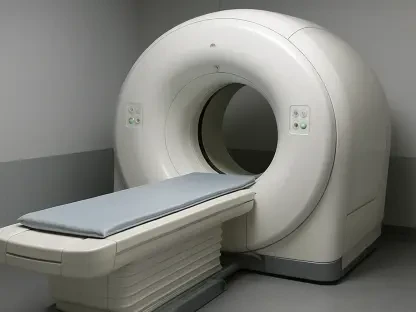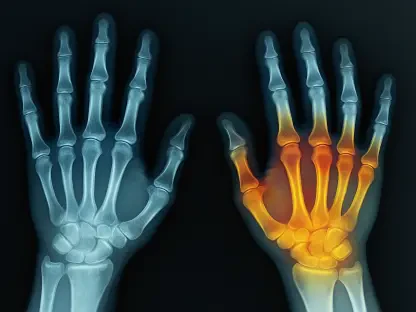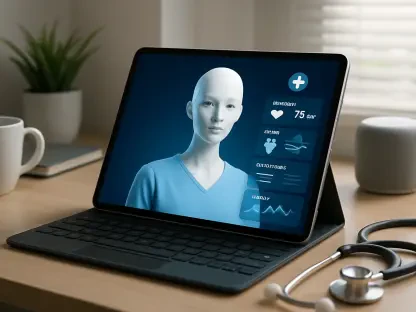The landscape of drug development is undergoing a profound transformation with the emergence of Clinical Trial Software (CTS), a technological innovation that tackles the growing challenges of modern clinical research. As trials expand across global borders and increase in complexity with intricate protocols and diverse patient populations, the limitations of traditional manual processes have become impossible to ignore. Errors in drug dispensing, mismanagement of inventory, and failure to adhere to stringent regulatory standards pose significant risks to patient safety and data integrity. CTS offers a powerful solution by automating critical tasks, enhancing compliance with international guidelines, and streamlining operations for pharmaceutical and biotech companies. This digital shift is not merely a trend but a fundamental change, promising greater efficiency and reliability in the journey to bring life-saving treatments to market. The impact of this technology is reshaping how the industry approaches research, setting a new standard for safety and precision.
Harnessing Automation for Trial Efficiency
The sheer scale and intricacy of contemporary clinical trials, often spanning multiple countries, render manual record-keeping an outdated and error-prone method that can jeopardize entire studies. CTS counters these risks by automating essential processes such as drug dispensing, inventory tracking, and the labeling of investigational medicinal products. With capabilities like real-time data access and automated monitoring of storage conditions, including temperature controls, the software ensures that trial integrity is maintained at every step. This level of automation goes beyond mere convenience, serving as a critical safeguard against human error in high-stakes environments. By replacing cumbersome paperwork with digital precision, CTS allows research teams to focus on core scientific objectives rather than administrative burdens, ultimately accelerating the pace of drug development while upholding the highest standards of accuracy.
Beyond reducing errors, the automation provided by CTS delivers measurable improvements in operational efficiency that directly influence the success of clinical trials. The ability to instantly access and update trial data across global sites fosters seamless collaboration among researchers, pharmacies, and clinical staff, eliminating delays caused by manual updates or miscommunication. Furthermore, automated systems for drug accountability and reconciliation minimize waste, cutting costs for sponsors and ensuring resources are used effectively. This efficiency is particularly vital in an industry where timelines are tight, and budgets are often stretched thin. As regulatory bodies demand ever-more meticulous documentation, the role of CTS in maintaining compliance through automated audit trails becomes indispensable. The technology not only streamlines workflows but also builds a foundation of trust and reliability that is essential for advancing medical breakthroughs.
Elevating Patient Safety and Trial Outcomes
One of the most significant contributions of CTS lies in its ability to enhance patient safety, a cornerstone of ethical clinical research that cannot be compromised. By minimizing protocol deviations related to drug administration and improving traceability of medications throughout the trial process, the software ensures that patients receive the correct treatments under the right conditions. This precision is critical in preventing adverse events that could derail studies or harm participants. Additionally, CTS supports trial sites in remaining inspection-ready for regulatory audits by maintaining accurate, real-time records that demonstrate adherence to strict guidelines. In an era where patient trust is paramount, this technology serves as a vital tool for upholding the integrity of clinical research and ensuring that safety remains the top priority across all stages of drug development.
The impact of CTS on patient outcomes extends even further in the context of decentralized clinical trials, a model that has gained traction for its patient-centric approach. Features such as virtual pharmacy services, remote medication delivery, and real-time monitoring enable patients with limited mobility or access to trial sites to participate more easily. This not only boosts recruitment numbers but also improves retention and adherence to study protocols, leading to more robust and representative data. As the industry increasingly prioritizes inclusivity in research, CTS facilitates this shift by bridging geographical and logistical barriers. The ability to manage trials remotely without sacrificing safety or compliance marks a significant leap forward, ensuring that diverse patient populations can contribute to the development of new therapies tailored to their needs.
Adapting to Emerging Trends in Research
The rapid evolution of CTS technology reflects the dynamic needs of modern clinical research, incorporating cutting-edge features that streamline operations on a global scale. Tools like barcode scanning for precise drug dispensing and integrated randomization systems for blinded studies reduce the risk of errors and enhance trial accuracy. Cloud-based platforms enable secure, real-time data access, fostering collaboration among stakeholders regardless of location. Moreover, interoperability with electronic data capture (EDC) systems and electronic trial master files (eTMF) creates a cohesive digital ecosystem that eliminates silos and boosts efficiency. This trend toward comprehensive, connected solutions underscores the industry’s recognition that fragmented approaches are no longer viable in a landscape defined by complexity and the demand for speed without sacrificing quality.
Another pivotal trend shaping the adoption of CTS is the shift toward decentralized and personalized medicine, which requires innovative tools to manage unique challenges. The software’s ability to support remote medication delivery and monitor patient adherence in real time addresses the needs of decentralized trials, where participants may rarely visit physical sites. Equally important is its role in precision medicine, where complex dosing schedules for individualized therapies demand a level of accuracy unattainable through manual methods. As the focus on tailored treatments intensifies, CTS provides the scalability and precision necessary to handle these intricate protocols. This adaptability positions the technology as a linchpin in the industry’s efforts to deliver therapies that are not only effective but also customized to the specific genetic and health profiles of patients.
Tackling Challenges in Software Implementation
Despite its transformative potential, the adoption of CTS faces notable obstacles, particularly for smaller trial sites and regional research institutions with constrained budgets. High initial costs for procurement and maintenance can be prohibitive, while resistance to technological change among staff accustomed to traditional methods often slows progress. Additionally, concerns about cybersecurity loom large, given the sensitive nature of clinical data and the potential consequences of breaches. However, vendors are actively addressing these barriers by offering scalable solutions such as cloud-based models that reduce the need for extensive on-site IT infrastructure. Comprehensive onboarding and training programs also help ease the transition, equipping teams with the skills needed to leverage the software effectively and fostering confidence in its benefits.
To further mitigate challenges, the industry is making strides in improving interoperability and security, ensuring that CTS can be integrated seamlessly into existing workflows. Open API architectures and standardized data protocols facilitate compatibility with other digital tools, reducing the complexity of implementation for resource-limited sites. On the cybersecurity front, advanced encryption, strict access controls, and regular vulnerability assessments are becoming standard features, safeguarding trial data against threats. These efforts collectively lower the entry barriers, making CTS accessible to a broader range of research entities. As solutions continue to evolve, the focus remains on balancing affordability with robust functionality, ensuring that even smaller players in the clinical research space can harness the power of digital transformation to contribute to global health advancements.
Paving the Way for Future Innovations
Reflecting on the journey of clinical trial technology, it’s evident that CTS has played a pivotal role in overcoming the inefficiencies and risks tied to manual processes over recent years. Its implementation addressed critical gaps in drug management and regulatory compliance, setting a new benchmark for safety and reliability in research. The software proved instrumental in supporting innovative trial models, from decentralized setups to personalized medicine, ensuring that patient needs were met without compromising on precision. Each advancement, from automation to cloud integration, marked a step forward in building a more connected and efficient clinical research ecosystem that prioritized both outcomes and ethics.
Looking ahead, the next steps involve expanding access to CTS through continued vendor innovation and industry collaboration, ensuring that even the smallest research units can adopt these tools. Solutions like enhanced training, cost-effective licensing models, and stronger cybersecurity measures emerged as priorities to sustain momentum. Encouraging dialogue among stakeholders to address evolving regulatory demands and technological needs will be crucial. By focusing on scalability and inclusivity, the industry can build on past successes, driving further progress in drug development and ultimately delivering therapies that transform lives across the globe.









